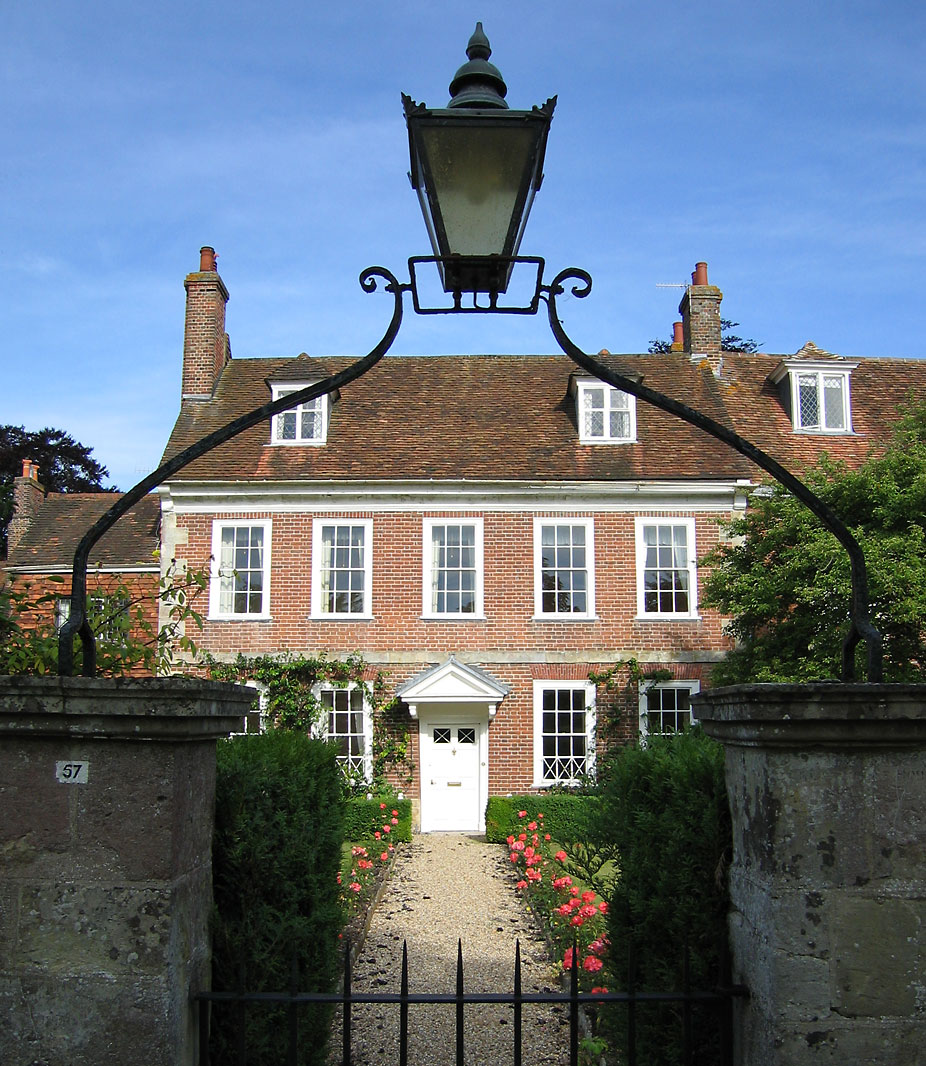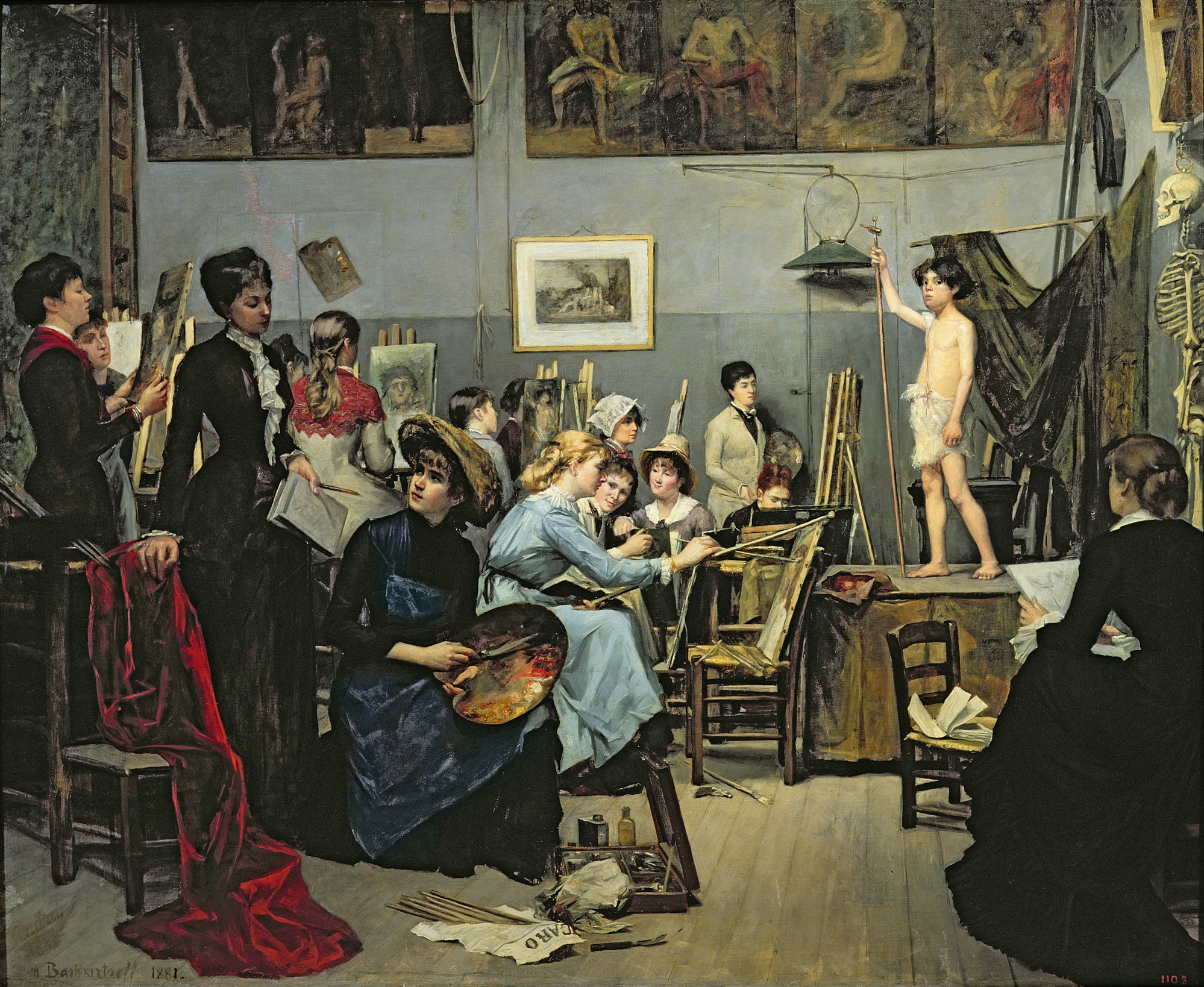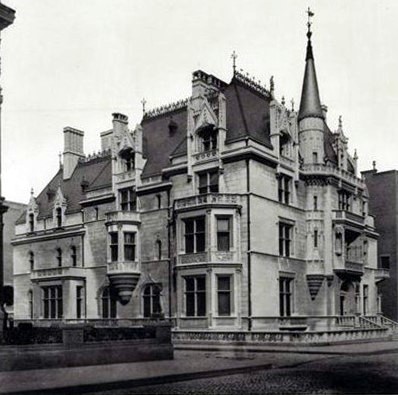|
Arthur M. Sackler Museum
The Harvard Art Museums are part of Harvard University and comprise three museums: the Fogg Museum (established in 1895), the Busch-Reisinger Museum (established in 1903), and the Arthur M. Sackler Museum (established in 1985), and four research centers: the Archaeological Exploration of Sardis (founded in 1958), the Center for the Technical Study of Modern Art (founded in 2002), the Harvard Art Museums Archives, and the Straus Center for Conservation and Technical Studies (founded in 1928). The three museums that constitute the Harvard Art Museums were initially integrated into a single institution under the name Harvard University Art Museums in 1983. The word "University" was dropped from the institutional name in 2008. The collections include approximately 250,000 objects in all media, ranging in date from antiquity to the present and originating in Europe, North America, North Africa, the Middle East, South Asia, East Asia, and Southeast Asia. The main building contains of s ... [...More Info...] [...Related Items...] OR: [Wikipedia] [Google] [Baidu] |
Cambridge, Massachusetts
Cambridge ( ) is a city in Middlesex County, Massachusetts, United States. As part of the Boston metropolitan area, the cities population of the 2020 U.S. census was 118,403, making it the fourth most populous city in the state, behind Boston, Worcester, and Springfield. It is one of two de jure county seats of Middlesex County, although the county's executive government was abolished in 1997. Situated directly north of Boston, across the Charles River, it was named in honor of the University of Cambridge in England, once also an important center of the Puritan theology embraced by the town's founders. Harvard University, the Massachusetts Institute of Technology (MIT), Lesley University, and Hult International Business School are in Cambridge, as was Radcliffe College before it merged with Harvard. Kendall Square in Cambridge has been called "the most innovative square mile on the planet" owing to the high concentration of successful startups that have emerged in the vicinity ... [...More Info...] [...Related Items...] OR: [Wikipedia] [Google] [Baidu] |
Daniel Robbins (art Historian)
Daniel J. Robbins (January 15, 1932 – January 14, 1995) was an American art historian, art critic, and curator, who specialized in avant-garde 20th-century art and helped encourage the study of it. Robbins' area of scholarship was on the theoretical and philosophical origins of Cubism. His writings centered on the importance of artists such as Albert Gleizes, Jean Metzinger, Henri Le Fauconnier and Jacques Villon. He was a specialist in early Modernism, writing on Salon Cubists (the Section d'Or group) and championed contemporaries such as Louise Bourgeois and the Color Field painters. Art historian Peter Brooke referred to Robbins as "the great pioneer of the broader history of Cubism". Biography Education and career Daniel Robbins (Jeremiah Drummer and George Gregory Dobbs, pseud.) attended the University of Chicago as an undergraduate, receiving an A.B. in 1951 at age 19. He then attended Yale University receiving an M.A. in Art History in 1955. He had initially applied at ... [...More Info...] [...Related Items...] OR: [Wikipedia] [Google] [Baidu] |
Shepley Bulfinch
Shepley Bulfinch (Shepley Bulfinch Richardson & Abbott Inc.) is an international architecture, planning, and interior design firm with offices in Boston, Hartford, Houston, and Phoenix. It is one of the oldest architecture firms in continuous practice in the United States, and was recognized by the American Institute of Architects with its highest honor, the AIA Architecture Firm Award, in 1973. History Shepley Bulfinch is the successor firm to the architecture practice formed in Boston in 1874 by American architect Henry Hobson Richardson. Following Richardson's death in 1886, the firm existed as Shepley, Rutan and Coolidge through 1915, then became Coolidge and Shattuck from 1915 through 1924, Coolidge Shepley Bulfinch and Abbott from 1924 through 1952, and Shepley Bulfinch Richardson and Abbott from 1952. In 2009 Shepley Bulfinch acquired Merz Project, a small design studio located in Phoenix, Arizona, that is now the firm's Phoenix office. In 2015, the firm acquired Bailey Archi ... [...More Info...] [...Related Items...] OR: [Wikipedia] [Google] [Baidu] |
Georgian Revival
Georgian architecture is the name given in most English-speaking countries to the set of architectural styles current between 1714 and 1830. It is named after the first four British monarchs of the House of Hanover—George I, George II, George III, and George IV—who reigned in continuous succession from August 1714 to June 1830. The so-called great Georgian cities of the British Isles were Edinburgh, Bath, pre-independence Dublin, and London, and to a lesser extent York and Bristol. The style was revived in the late 19th century in the United States as Colonial Revival architecture and in the early 20th century in Great Britain as Neo-Georgian architecture; in both it is also called Georgian Revival architecture. In the United States the term "Georgian" is generally used to describe all buildings from the period, regardless of style; in Britain it is generally restricted to buildings that are "architectural in intention", and have stylistic characteristics that are typical o ... [...More Info...] [...Related Items...] OR: [Wikipedia] [Google] [Baidu] |
Critical Inquiry
''Critical Inquiry'' is a quarterly peer-reviewed academic journal in the humanities published by the University of Chicago Press on behalf of the Department of English Language and Literature (University of Chicago). While the topics and historical periods it covers are diverse, the journal is known as a long-standing, highly regarded critical theory driven venue for interpretive scholarship, especially but not exclusively in literature and textual criticism. It was established in 1974 by Wayne Booth, Arthur Heiserman, and Sheldon Sacks Sheldon may refer to: * Sheldon (name), a given name and a surname, and a list of people with the name Places Australia * Sheldon, Queensland *Sheldon Forest, New South Wales United Kingdom *Sheldon, Derbyshire, England *Sheldon, Devon, England .... From 1978 to 2020, the journal was edited by W. J. T. Mitchell. Since June 2020 it is co-edited by Bill Brown and Frances Ferguson. The journal has been called "one of the best known and most infl ... [...More Info...] [...Related Items...] OR: [Wikipedia] [Google] [Baidu] |
Magic Lantern
The magic lantern, also known by its Latin name , is an early type of image projector that used pictures—paintings, prints, or photographs—on transparent plates (usually made of glass), one or more lenses, and a light source. Because a single lens inverts an image projected through it (as in the phenomenon which inverts the image of a camera obscura), slides were inserted upside down in the magic lantern, rendering the projected image correctly oriented. It was mostly developed in the 17th century and commonly used for entertainment purposes. It was increasingly used for education during the 19th century. Since the late 19th century, smaller versions were also mass-produced as toys. The magic lantern was in wide use from the 18th century until the mid-20th century when it was superseded by a compact version that could hold many 35 mm photographic slides: the slide projector. Technology Apparatus The magic lantern used a concave mirror behind a light source to direct ... [...More Info...] [...Related Items...] OR: [Wikipedia] [Google] [Baidu] |
Visual Arts Education
Visual arts education is the area of learning that is based upon the kind of art that one can see, visual arts—drawing, painting, sculpture, printmaking, and design in jewelry, pottery, weaving, fabrics, etc. and design applied to more practical fields such as commercial graphics and home furnishings. Contemporary topics include photography, video, film, design, and computer art. Art education may focus on students creating art, on learning to criticize or appreciate art, or some combination of the two. Approaches Art is often taught through drawing, painting, sculpture, installation, and mark making. Drawing is viewed as an empirical activity which involves seeing, interpreting and discovering appropriate marks to reproduce an observed phenomenon. Drawing instruction has been a component of formal education in the West since the Hellenistic period. In East Asia, arts education for nonprofessional artists typically focused on brushwork; calligraphy was numbered among the Si ... [...More Info...] [...Related Items...] OR: [Wikipedia] [Google] [Baidu] |
Donald Preziosi
Donald Anthony Preziosi (born January 12, 1941) is an American art historian. He is Emeritus Professor of Art History at the University of California, Los Angeles. In August 2007, he became the MacGeorge Fellow at the University of Melbourne. He is a past president of the Semiotic Society of America (1985). In his writing he combines disciplines as diverse as intellectual history, critical theory and museology. His 1998 book ''The Art of Art History: A Critical Anthology'' is considered 'the most widely used English-language introduction to art history'. At UCLA, Professor Preziosi developed the art history critical theory program and the UCLA museum studies program. At Oxford, he held the Slade Professorship of Fine Arts in 2001, where he delivered a series of lectures entitled ''Seeing Through Art History''. Education Preziosi received his bachelor's degree from Fairfield University and his master's degree in Linguistics and a Ph.D. in art history from Harvard University ... [...More Info...] [...Related Items...] OR: [Wikipedia] [Google] [Baidu] |
Richard Morris Hunt
Richard Morris Hunt (October 31, 1827 – July 31, 1895) was an American architect of the nineteenth century and an eminent figure in the history of American architecture. He helped shape New York City with his designs for the 1902 entrance façade and Great Hall of the Metropolitan Museum of Art, the pedestal of the Statue of Liberty (''Liberty Enlightening the World''), and many Fifth Avenue mansions since destroyed. Hunt is also renowned for his Biltmore Estate, America's largest private house, near Asheville, North Carolina, and for his elaborate summer cottages in Newport, Rhode Island, which set a new standard of ostentation for the social elite and the newly minted millionaires of the Gilded Age. Early life Hunt was born at Brattleboro, Vermont into the prominent Hunt family. His father, Jonathan Hunt, was a lawyer and U.S. congressman, whose own father, Jonathan Hunt, senior, was lieutenant governor of Vermont. Hunt's mother, Jane Maria Leavitt, was the daughter of ... [...More Info...] [...Related Items...] OR: [Wikipedia] [Google] [Baidu] |
Italian Renaissance
The Italian Renaissance ( it, Rinascimento ) was a period in Italian history covering the 15th and 16th centuries. The period is known for the initial development of the broader Renaissance culture that spread across Europe and marked the transition from the Middle Ages to modernity. Proponents of a "long Renaissance" argue that it started around the year 1300 and lasted until about 1600. In some fields, a Proto-Renaissance, beginning around 1250, is typically accepted. The French word ''renaissance'' (corresponding to ''rinascimento'' in Italian) means 'rebirth', and defines the period as one of cultural revival and renewed interest in classical antiquity after the centuries during what Renaissance humanists labelled as the "Dark Ages". The Renaissance author Giorgio Vasari used the term ''rinascita'' 'rebirth' in his '' Lives of the Most Excellent Painters, Sculptors, and Architects'' in 1550, but the concept became widespread only in the 19th century, after the work of schola ... [...More Info...] [...Related Items...] OR: [Wikipedia] [Google] [Baidu] |
Thomas W
Thomas may refer to: People * List of people with given name Thomas * Thomas (name) * Thomas (surname) * Saint Thomas (other) * Thomas Aquinas (1225–1274) Italian Dominican friar, philosopher, and Doctor of the Church * Thomas the Apostle * Thomas (bishop of the East Angles) (fl. 640s–650s), medieval Bishop of the East Angles * Thomas (Archdeacon of Barnstaple) (fl. 1203), Archdeacon of Barnstaple * Thomas, Count of Perche (1195–1217), Count of Perche * Thomas (bishop of Finland) (1248), first known Bishop of Finland * Thomas, Earl of Mar (1330–1377), 14th-century Earl, Aberdeen, Scotland Geography Places in the United States * Thomas, Illinois * Thomas, Indiana * Thomas, Oklahoma * Thomas, Oregon * Thomas, South Dakota * Thomas, Virginia * Thomas, Washington * Thomas, West Virginia * Thomas County (other) * Thomas Township (other) Elsewhere * Thomas Glacier (Greenland) Arts, entertainment, and media * ''Thomas'' (Burton novel) 1969 nove ... [...More Info...] [...Related Items...] OR: [Wikipedia] [Google] [Baidu] |






